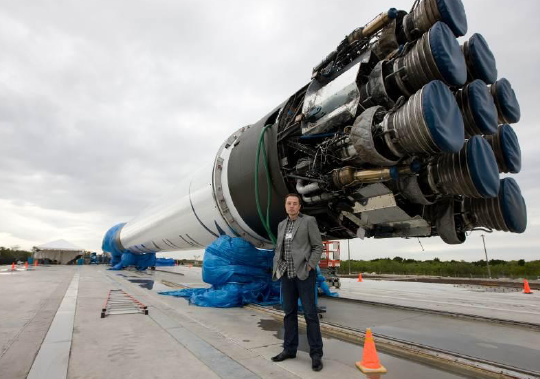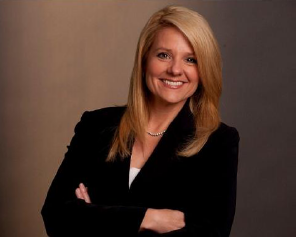A New Era in Commercial Space Transportation: Falcon 9 - Dragon

I wrote about Elon Musk last year "Next Steve Jobs of Automotive & Space?" Born in South Africa in 1971, Musk bought his first computer at age 10 and taught himself how to program, by the age of 12 he sold his first commercial software for about $500, a space game called Blastar. He moved to the U.S., where he studied physics and business at the University of Pennsylvania on a full scholarship.
As a entrepreneur Musk founded and sold a number of hugely successful internet businesses: Zip2, sold for $305 million to Compaq and PayPal, sold to eBay for $1.5 billion. Elon Musk's dreams and focus has been in three areas, what he calls "important problems that would most affect the future of humanity"
- Internet
- Clean energy
- Space
Musk has brought the silicon valley entrepreneur culture to his new ventures/dreams at Tesla Motos, Solar City and SpaceX CEO and Chief Designer. Saturday's launch represents the big milestone not only for SpaceX, but also for NASA to start passing the torch for lower orbit supply and service missions to the private sector, giving NASA the focus on true space exploration.
May 19, 2012 Launch target - backup on May 22nd
In 24 hours the first attempt will be made by a commercial company to supply the Space Station. COTS 2 Demostraion SpaceX/NASA launch and Mission to Space Station. Saturday morning, a Falcon 9 powered by nine Merlin engines generating one million pounds of thrust in vacuum is scheduled to lift off from Cape Canaveral in Florida on a mission to deliver a capsule full of supplies to the International Space Station.
Working for the past six years under NASA’s Commercial Orbital Transportation Services program (COTS), both SpaceX and Orbital Sciences Corp. have been pursuing independent efforts to design, test and fly two brand new cargo vehicles. SpaceX launch updates NASA Television Flight Coverage Launch scheduled at 4:55 a.m. EDT
How the International Space Station was assembled from 1998
 Gwynne Shotwell is president of SpaceX
Gwynne Shotwell is president of SpaceX
Elon Musk has put together a impressive team that includes Gwynne Shotwell, the president of SpaceX, responsible for day-to-day operations and for managing all customer and strategic relations to support company growth. Shotwell is a member of the SpaceX Board of Directors. Prior to joining SpaceX, Shotwell spent more than ten years at the Aerospace Corporation. There she held positions in space systems engineering & technology, as well as project management. She was promoted to the role of chief engineer of an MLV-class satellite program, managed a landmark study for the Federal Aviation Administration on commercial space transportation, and completed an extensive analysis of space policy for NASA’s future investment in space transportation.
Gwynne Shotwell at Commerce, Science, & Transportation Subcommittee
The COTS program was the first of its kind for NASA: a ―pay for performance‖ partnership between the government and private business to rapidly design and prototype critical technologies. NASA structured the COTS program as a collaborative partnership with the commercial space industry, sharing the risks, costs and rewards of developing new space transportation capabilities. Under the program, NASA provides seed money for the development of private spaceflight capabilities, but issues payment only after a company meets technical and financial performance milestones. The participating COTS contractors, likewise, invest in the program and put their own financial ―skin in the game. For the completed list of COTS milestones see Gwynne Shotwell's statment to the Space Subcommitte on May 26, 2011.
SpaceX upcoming launch manifest
Related
- The next Steve Jobs of Automotive & Space?
- Endeavor’s Final Voyage next-to-last space shuttle flight
- Driven to Dream: Tesla Motors, the Resurgence of the Electric Car
- Driven to Drive: Model X Crossover by Tesla Motors
- Inspiration Innovation Discovery is the Legacy
- Discovery's final voyage today 4:50p EST
- 10 NASA Inventions You Might Use Every Day
 Admin
Admin
Lucky early success lays the foundation for disaster in the future
SpaceX is learning more from this abort than a successful first test launch. Based on the update from SpcaeX, the controls software did what it was designed to do, detect high pressure in engine combustion chamber. Protect the future crew, cargo and the program. Great Job ,well done.
" Update from SpaceX COTS 2 Test Launch May 19, 2012
Today’s COTS 2 Demonstration launch was aborted half a second before liftoff when the flight computer detected slightly high pressure in the engine 5 combustion chamber. We have discovered root cause and repairs are underway.
During rigorous inspections of the engine, SpaceX engineers discovered a faulty check valve on the Merlin engine. We are now in the process of replacing the failed valve. Those repairs should be complete tonight. We will continue to review data on Sunday. If things look good, we will be ready to attempt to launch on Tuesday, May 22nd at 3:44 AM Eastern."
 Admin
Admin
Mission Highlights: SpaceX's Dragon Makes History
 3 References | in
3 References | in  Discovery,
Discovery,  Dreams,
Dreams,  Innovation | tagged
Innovation | tagged  Aspiration,
Aspiration,  Dream,
Dream,  Elon Musk,
Elon Musk,  Gwynne Shotwell,
Gwynne Shotwell,  NASA,
NASA,  Space,
Space,  Space,
Space,  Space Station,
Space Station,  SpaceX,
SpaceX,  entrepreneur
entrepreneur  Permalink
Permalink  Print Article
Print Article 